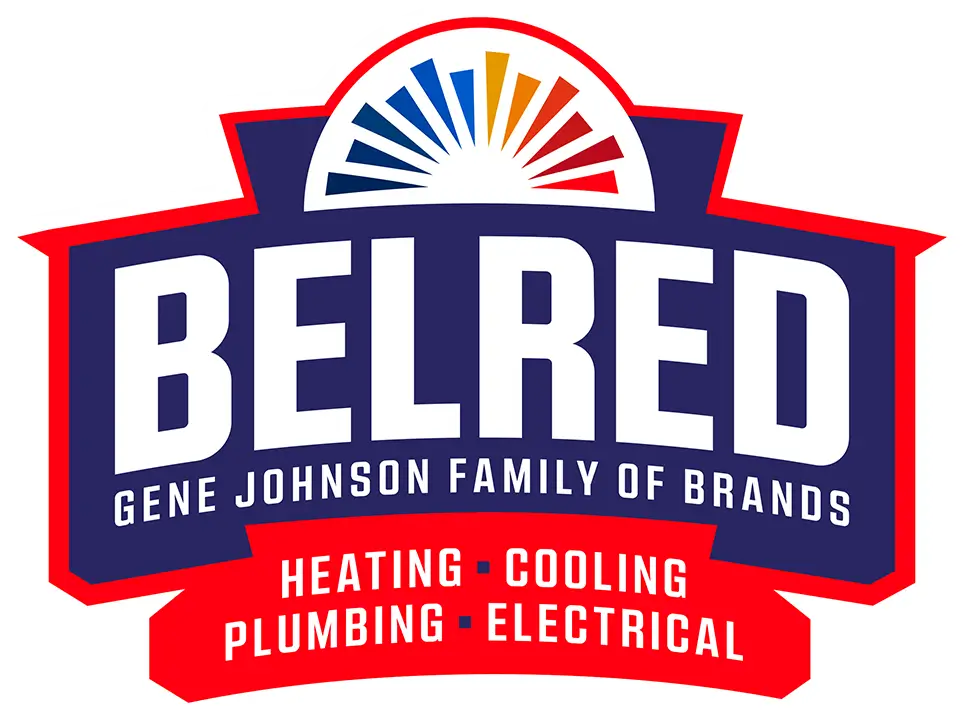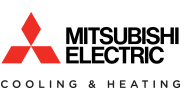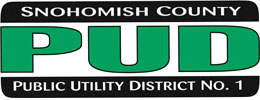For homeowners around Mill Creek, having a reliable heat pump is pretty much essential for staying comfortable through our area’s wild weather swings. One day you’re cranking that AC during a scorching summer heat wave, the next you’re blasting that heat as an arctic chill blows in.
These workhorses stay on duty year-round regulating your home’s temperatures no matter what kind of conditions nature decides to throw our way. But that relentless workload also means they require some professional TLC to keep running smoothly and efficiently season after season.
Skipping those routine maintenance tune-ups is just begging for a world of costly headaches down the road. We’re talking spiking utility bills, uneven heating and cooling, pricey repair needs, and potentially even full-on system breakdowns years before you’d expect.
That’s why at BelRed, we’ve specialized in comprehensive heat pump tune-up services for over 38 years. Our certified pros follow a thorough, meticulous process to ensure your equipment stays in prime operating condition through every season’s challenges.
Don’t let heat pump issues put a damper on your home’s comfort and budget. Give the experts at BelRed a call today at (855) 345-6161 to schedule your seasonal tune-up!
(855) 345-6161BelRed’s Heat Pump Maintenance Process in Mill Creek, WA
Consistent professional maintenance is an absolute must if you want to keep that heat pump system running smoothly and efficiently year after year. At BelRed, we’ve got a finely-tuned process to ensure your heating and cooling equipment gets the white-glove treatment it deserves. Here’s what goes into our comprehensive tune-up routine:
Seasonal Check-Ups
The backbone of our maintenance approach is scheduling those biannual check-ups for your heat pump – one visit in the spring before cooling season hits, and another in the fall as heating needs ramp up. These twice-yearly appointments allow our techs to give your entire system a thorough inspection from top to bottom.
Under the Microscope
During each tune-up visit, our certified pros will put your heat pump through its paces with a full battery of diagnostic tests and examinations. We’re talking electrical load testing, refrigerant charge analysis, defrost cycle monitoring, airflow assessments – you name it. If there’s an issue brewing, we’ll sniff it out.
White-Glove Cleaning
A huge part of these maintenance calls is giving your heat pump’s components a deep, thorough cleaning to remove built-up gunk, grime, and contaminants. We’re talking carefully clearing away debris from coils, fins, drainage pans – every nook and cranny of both indoor and outdoor units.
Surgical Repairs
If we do happen to identify any developing problems during our inspections, we’ll make those surgical repair needs right then and there using factory-authorized replacement parts. We’ll also recalibrate and fine-tune system controls like thermostats and defrost boards to restore peak operating condition.
Performance Validation
Before we finalize the tune-up, our techs will do comprehensive performance testing on the entire system to validate everything is operating properly and at maximum efficiency. We’ll make any final tweaks and adjustments needed until we’ve got it just right.
With BelRed’s comprehensive tune-up process, you can rest easy knowing your heat pump is getting the meticulous professional care and maintenance it needs to keep purring like a kitten year-round. We follow best practices to the letter – no shortcuts, just quality workmanship.
Heat Pump Maintenance FAQ
- The Importance of Heat Pump Maintenance
- The Risks of Skipping Heat Pump Maintenance
- How Can I Tell if My Heat Pump Needs Maintenance?
- Is Maintenance Frequency the Same for Heat Pumps as They Are for ACs?
- What Maintenance Tasks Can a Homeowner Perform on a Heat Pump?
- Is It Easier to Maintain a Heat Pump Than a Furnace?
- Does Heat Pump Build Quality Affect Maintenance Frequency?
- Does Washington's Weather Put Strain on Heat Pumps?
The Importance of Heat Pump Maintenance
Keeping your heat pump system operating at peak performance year after year requires more than just flipping it on and hoping for the best. Consistent professional maintenance is absolutely crucial for maximizing its efficiency, reliability, and lifespan.
Think of it like changing the oil in your car – neglect that simple task and it’s going to lead to accelerated engine wear and potentially leave you stranded. The same principle applies to the heart of your home’s heating and cooling. A little routine TLC prevents major headaches down the road.
So what exactly are the benefits of investing in annual heat pump tune-ups? Here’s a quick rundown:
Better Energy Efficiency
Over time, your heat pump’s components can get out of calibration, leading to longer run times and higher energy bills. Maintenance restores peak operating conditions to keep those utility costs in check.
Longer Equipment Life
Those tiny issues like refrigerant leaks or failing parts may seem minor initially. But if left unaddressed, they’ll slowly snowball into major compressor breakdowns or complete system failures years before you’d expect.
Enhanced Home Comfort
Is your heat pump struggling to evenly heat or cool your home lately? Chances are good a professional cleaning and recalibration can get it back into top shape for consistent temperatures.
Fewer Surprise Repairs
When skilled techs give your system a thorough annual inspection, they can catch and fix any small developing issues before they escalate into bigger (and pricier) repairs.
Maintain Warranty Coverage
Most manufacturer warranties require proof of professional maintenance to remain valid. Skipping tune-ups could potentially void that costly equipment coverage.
At the end of the day, the minor cost of routine maintenance is a small investment for the long-term benefits it provides. Those annual visits from an HVAC pro can double or even triple your heat pump’s effective lifespan while preventing surprise breakdowns.
The Risks of Skipping Heat Pump Maintenance
On the flip side, failing to keep up with regular heat pump maintenance is just begging for headaches and expensive issues down the line. Trying to tough it out and “get by” without annual tune-ups is a gamble that rarely pays off for homeowners.
While skipping maintenance may seem to save a few bucks upfront, it opens you up to a range of potential problems and premature system failures. Here are some of the biggest risks:
Accelerated Wear and Tear
Without periodic cleaning and calibrations, your heat pump’s components are essentially running with the parking brake on. That excess strain from dirty coils, off-kilter refrigerant levels, and other minor issues creates a compounding cycle of accelerated wear.
Declining Energy Efficiency
As your system gets progressively more out-of-whack from lack of maintenance, its energy efficiency plummets. You’ll see utility costs steadily climbing as the heat pump has to run longer and work harder to compensate.
Uneven Heating & Cooling
Is your thermostat reading one temp while some rooms feel much colder or warmer? Improper refrigerant charge and airflow issues from deferred maintenance are often to blame for that uneven heating/cooling.
Shortened Equipment Lifespan
At a certain point, those minor issues like refrigerant leaks and failing parts turn into catastrophic breakdowns if left unchecked. What could have been an inexpensive fix turns into an entire system replacement years ahead of schedule.
Surprise Breakdowns
There’s nothing quite as unpleasant as your heat pump crapping out unexpectedly in the middle of a cold snap or heatwave. With no preemptive maintenance, you have zero warning before these failures.
Potential Safety Hazards
When electrical systems and components start deteriorating from neglect, it opens up risks of fires, shocks, and other hazards that put your family’s safety in jeopardy.
At the end of the day, an ounce of prevention really is worth a pound of cure when it comes to heat pumps. Investing a few bucks into professional tune-ups annually prevents thousands in premature replacement costs and surprise repair bills. Not to mention the comfort and efficiency benefits!
How Can I Tell if My Heat Pump Needs Maintenance?
Even with the best intentions, it’s easy to let annual heat pump tune-ups slip through the cracks from time to time. But ignoring maintenance needs for too long can lead to serious consequences down the line. Staying alert to these potential red flags is key:
Rising Energy Bills
If you’ve noticed a sudden, unexplained spike in your heating and cooling costs compared to previous years, it could mean your heat pump is having to work overtime due to an underlying issue. Increased run times drive up those utility bills.
Uneven Temperatures
Is your upstairs always too hot while the basement feels chilly no matter the thermostat setting? Hot or cold rooms are frequently caused by airflow issues that routine maintenance can resolve.
Excessive Noise Levels
While a little operational noise is normal, louder-than-usual clanking, buzzing or screeching sounds from your indoor or outdoor units could indicate a component is failing or misaligned.
Weak Airflow
Go feel the air coming out of your vents and returns. If that airflow seems weaker than normal, it may mean your air filters or coils are dirty and due for a cleaning to restore proper flow.
Short-Cycling Issues
If your heat pump is constantly cycling on and off repeatedly without running for long periods, it’s likely struggling due to refrigerant leaks, electrical problems or other issues preventing it from operating efficiently.
Moisture or Leak Concerns
Any signs of excess moisture, condensation or water leaks around your indoor air handler or outdoor condenser units can indicate serious refrigerant leaks that need to be addressed immediately.
Of course, the best policy is to have an HVAC professional inspect your system annually before any major red flags appear. But if you do notice any of those warning signs crop up, it’s a good idea to get it checked out sooner rather than later. A little preventative maintenance goes a long way!
Is Maintenance Frequency the Same for Heat Pumps as They Are for ACs?
If you’re familiar with the recommended annual tune-up schedule for traditional air conditioning systems, you might think the same applies to heat pumps too. But these two types of HVAC equipment actually aren’t one-size-fits-all when it comes to maintenance intervals.
The reason? Heat pumps are year-round workhorses rather than just summertime cooling machines. Instead of only running hard for a few months, they’re tasked with providing both heating and cooling for your home across all four seasons. That increased operational demand means more wear and tear.
Most reputable HVAC pros recommend having preventative maintenance performed on your heat pump system twice per year – once in the spring before cooling season kicks off, and again in the fall before those heating needs ramp up.
During those biannual tune-ups, a certified tech will give your system a full once-over. We’re talking thorough inspections and cleanings of the indoor/outdoor units, electrical checks, defrost cycle tests, refrigerant level checks, and thermostat calibrations to ensure every component is up to snuff.
That extra visit allows any potential issues to get caught and resolved before they inevitably get worse down the line. It also provides a crucial “reset” to ensure your system can efficiently switch gears from cooling to heating mode (or vice versa) when the seasons change.
So while that annual AC tune-up is better than nothing for a heat pump, committing to that biannual maintenance schedule is really what the doctor ordered to maximize the system’s efficiency, reliability and lifespan year-round without any surprises.
What Maintenance Tasks Can a Homeowner Perform on a Heat Pump?
While those professional biannual tune-ups are non-negotiable, there are still some simple heat pump maintenance tasks homeowners can (and should) handle in between an HVAC tech’s visits. Staying on top of these can go a long way in keeping your system running smoothly:
Filter Replacements
This is Heating 101, but it’s worth repeating – regularly replacing those air filters is huge. Clogged, dirty filters make your heat pump work overtime by restricting airflow. Aim to swap them out every 1-3 months during peak heating and cooling seasons without fail. Stock up on extras so you never put this off.
Outdoor Unit Cleaning
Take a periodic stroll around that outdoor condenser unit and clear away any leaves, grass trimmings, dirt, or other debris that may have accumulated on the fins and coils. Allowing junk to build up can impair heat transfer and airflow really quickly. A quick rinse with the garden hose can help rinse things off too.
Visual Inspections
While you’re out there checking on the outdoor unit, do a quick visual once-over. Look for any signs of excessive wear and tear, moisture buildup around the base, or other potential issues. Also take a moment to listen for any abnormal operational sounds like rattling, buzzing, or screeching that could indicate a problem brewing.
Condensate Line Flushing
Head inside and locate the condensate drain line coming from your indoor air handler unit. Make sure it’s not clogged or obstructed, as this can lead to leaks, moisture issues, and mold growth. If it seems blocked, you can try flushing it out using a mix of bleach and water.
Of course, there are still plenty of heat pump maintenance items that require a trained professional’s touch for safety reasons. But taking the time to properly handle these basic homeowner duties between tune-ups allows your system to operate at peak efficiency year-round without any hiccups.
Is It Easier to Maintain a Heat Pump Than a Furnace?
When it comes to the maintenance requirements of home heating systems, heat pumps and traditional furnaces actually aren’t one-size-fits-all. Each type of equipment brings its own unique needs to the table that homeowners have to stay on top of.
On paper, you might think a heat pump would be the lower-maintenance option compared to a furnace. After all, it doesn’t have that constantly burning combustion chamber and exhaust flues to worry about like gas furnaces do. But dig a little deeper, and heat pumps have their own maintenance complexities.
The biggest factor is that heat pumps are year-round workhorses rather than just wintertime heating machines. They’re tasked with providing both heating and cooling for your place across all four seasons. That increased operational demand means more wear and tear on components like compressors, refrigerant lines, air handlers, and electrical systems.
Most reputable HVAC contractors recommend getting heat pump systems professionally serviced twice per year – once in spring before cooling season kicks off and again in fall before those heating needs ramp up. During those biannual tune-ups, techs give the indoor/outdoor units a full inspection and cleaning, check all electrical connections, test defrost controls, measure refrigerant levels, calibrate thermostats, etc.
Furnaces, on the other hand, typically only require a single annual tune-up right before heating season. Techs will inspect the heat exchanger, clean the burners, check the ignition system, replace air filters, and ensure everything is operating safely. While that combustion process creates its own maintenance needs, the overall system complexity is lower than a heat pump.
For homeowners committed to properly maintaining their heating equipment per manufacturer recommendations, a heat pump does require a bit more hands-on upkeep compared to a basic furnace. But that consistent professional care also allows heat pumps to operate reliably and efficiently year-round while maximizing their lifespan in the long run.
Does Heat Pump Build Quality Affect Maintenance Frequency?
When it comes to any big home equipment buy, you typically get what you pay for quality-wise. And heat pumps are no exception. Opting for a premium model can actually save cash and headaches long-term through fewer repairs and maintenance needs. Here’s the scoop:
Those pricier units utilize more robust components under the hood. We’re talking variable compressors, multi-stage cooling, communicating tech, and other fancy features. But those aren’t just marketing buzzwords – they legitimately reduce wear and tear compared to basic models.
Premium brands also invest way more into research, testing, and quality control during engineering and production. This results in tighter build tolerances and fewer duds hitting the market out of the gate.
From compressor housings down to the smallest brackets, you’ll find higher-grade materials in premium heat pumps. This enhances corrosion resistance and longevity in ways you can’t get from builder-grade units.
Even the designs are more maintenance-friendly. Premium units have easier access panels and layouts allowing techs to perform thorough routine service quickly each visit.
On top of it all, those premium manufacturers back their quality with way more comprehensive warranty coverage for added peace of mind against premature failures.
While that higher price tag stings upfront, a well-built premium heat pump can prove the smarter investment long-term. You’ll shell out less for repairs and replacements while enjoying year after year of reliable, low-maintenance performance. Paying for quality from day one pays dividends.
Does Washington's Weather Put Strain on Heat Pumps?
Our lovely state of Washington dishes out some pretty intense and unpredictable weather patterns, especially here in the Mill Creek area. We get scorching summer heatwaves, brutal winter freezes, and everything in between all in the same year.
While that variety makes for a scenic four seasons, it also puts serious strain and wear-and-tear on home heating and cooling systems like heat pumps. These hardworking units have to switch gears constantly to keep household temperatures regulated no matter the conditions outside.
During those summer heatwaves, heat pumps run virtually non-stop trying to remove humidity and keep spaces cool and comfortable. The constant operation leads to accelerated deterioration of key components like compressors, fan motors, and refrigerant lines. Those unrelenting runtimes put immense stress on the entire system.
Then when winter hits, those same heat pumps switch into heating mode but face the challenge of trying to extract what little heat energy exists from the freezing outdoor air. This causes major efficiency drops as the system struggles to bring in enough warmth. The additional strain puts components like reversing valves and defrost controls through the wringer.
Our area’s quick transition periods between seasons are particularly taxing too. Heat pumps have to rapidly switch between heating and cooling modes, cycling on and off repeatedly as temperatures fluctuate up and down. All that excessive cycling increases wear-and-tear on parts while providing uneven temperatures inside.
Even ground-source geothermal heat pumps, which excel at maintaining efficiency year-round, still have to overcome Washington’s temperature extremes. Their underground loops have to work harder anytime temperatures stray too far from those ideal 50-55°F zones for extended periods.
The bottom line is Washington’s tendency for intense weather extremes and volatility creates a really tough operating environment for residential heat pumps year-round. The constant switching between modes, excessive runtimes, and temperature fluctuations lead to accelerated deterioration no matter the system type.
Consistent professional maintenance and timely repairs are absolutely crucial for ensuring your heat pump can withstand that workload year after year without major inefficiencies or premature breakdowns. Skipping those tune-ups is just asking for a world of expensive headaches down the line.
The BelRed Advantage for Heat Pump Maintenance
When it comes to keeping your home’s heat pump system running reliably and efficiently year after year, cutting corners on maintenance just doesn’t cut it. You need true professionals following proper procedures and best practices to the letter every single visit.
At BelRed, our heat pump maintenance process is designed to leave no stone unturned. We’ll put your entire system – both indoor and outdoor units – under the microscope with comprehensive diagnostics and performance testing. Any developing issues get surgically repaired on the spot using factory-authorized parts.
Our technicians also provide a thorough deep cleaning to remove built-up grime, contaminants, and debris from every coil, fin, and component. This crucial step restores peak heat transfer and airflow for maximum efficiency. We’ll also recalibrate all system controls like thermostats and defrost boards to restore perfect operating condition.
When we’re finished, you can feel confident your heat pump is primed to keep your home consistently comfortable all year long without driving up utility costs. We back our workmanship with upfront pricing and straightforward communication every step of the way.
Don’t let heat pump issues put a chill on your home’s comfort and budget. Call the professionals at BelRed today at (855) 345-6161 to schedule your seasonal tune-up!
YEARS
Since 1986
The Gold Standard in Heating & Cooling
At BelRed, we bring you greater comfort and efficiency to your home. We offer a Lifetime Limited Warranty on all heating, cooling, plumbing & electrical jobs – backed by our expert HVAC technicians. Whether you are in the market for a heat pump, mini-split, furnace, or air conditioner, we have an extensive list of high-end products.
BelRed Heating, Cooling, Plumbing & Electrical is licensed, bonded and insured. From a wide offering of services to an extensive product line, BelRed brings innovative solutions to every job. Call us today and always have a friend in the home services industry.
What Our Clients Say
Dustin H. Nick E., and Cody M. installed our new heat pump in a professional manner: All work was done as promised and onschedule. All three technicians deserve a 5 star rating.
Russ H was here today and fixed a problem that I had with my A/C. I’ve had several people coming before and never had success but he took the time and his great knowledge and fixed my problem. I would love to thank him for that a million times! Jill Motaman
Ray B and Nick E did an excellent job installing our new furnace. I was also pleased with the service that I received from Jake the day before regarding the inspection of the heating system and recommendations for correcting the problems we were having.
Great experience from start to finish. Richard was able to provide several options for water heater replacement that included replacement, upgrade and enhancement options. Installation was quick and neatly done. You’d never have known someone just did a replacement and installation. I think the area was cleaner after he left than before he got there.









